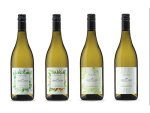New Zealand’s top business leaders are urging the US Administration to review “unjustified and discriminatory tariffs” imposed on Kiwi exporters.
The New Zealand International Business Forum (NZIBF), which brings together business leaders from the dairy, meat, seafood, kiwifruit, apples, pears, wine and services industries, with a combined turnover more than $30 billion, have expressed deep disappointment with the Trump Administration’s decision to impose an additional 10% tariffs on NZ exports.
In a statement NZIBF executive director Stephen Jacobi noted that the US is a close and valued trading partner.
“We have been closely aligned for decades in our support for better global trade rules. We have for some time now sought a comprehensive free trade agreement which would seek to eliminate the few remaining trade barriers between us,” he says.
“These additional so-called ‘reciprocal’ tariffs are unjustified because New Zealand, as acknowledged in the US Trade Representative National Estimates Report, applies an average tariff of 1.9% on US exports. NZIBF would most certainly support abolishing these tariffs on a reciprocal basis in the context of a comprehensive free trade negotiation”.
Jacobi says the US additional tariffs would cause pain for both exporters and consumers of New Zealand products in the US.
“We urge the US Administration to review these unjustified and discriminatory tariffs.
“New Zealand food and beverage, fibre and manufactured products have a well-earned reputation for quality and sustainability with US consumers and they make important contributions to further processing and manufacturing in the US, creating jobs and supporting growth in both countries.
“The tariff regime creates significant uncertainty at a time the global economy is growing only slowly and will likely have major effects on third markets”.
NZIBF is also concerned also that these tariffs clearly breach international trade rules and may be applied to exports of beef and cheese within tariff rate quotas negotiated under the World Trade Organisation (WTO).
“These country specific tariff rate quotas were negotiated under a multilateral process and were paid for by concessions offered by New Zealand,” he says.
“The outcome was duly ratified by the US Congress and the New Zealand Parliament. Applying additional tariffs to these quotas calls into question the integrity of those processes”.
Jacobi says that NZIBF members were closely evaluating the impact of the additional tariffs and would be working closely with the New Zealand Government in responding to the challenge now posed to the international trading system.










